
Japan's Tokito Oda (left) and Keiko Sugiura celebrate after winning gold medals in men's wheelchair tennis and para cycling road race events at the Paris Paralympics on September 7. (©REUTERS, KYODO)
Japan's 175-athlete delegation at the 2024 Paris Paralympics represented an abundant variety of success stories.
Paralympians ranging in age from 18 to 53 captured 14 gold medals in eight different sports in France for Team Japan. In total, Japan hauled in 41 medals, including 10 silver and 17 bronze.
Reflecting on Japan's performance in France, the national team's chef de mission, Aki Taguchi, expressed optimism that the Paralympians' success can be a catalyst for societal progress.
"I hope that through the success of the Para athletes, a symbiotic society will be further promoted," Taguchi was quoted as saying by The Sankei Shimbun.
The 14 gold medals put Japan 10th overall in that category among all national squads at the Paris Games. China was the runaway winner with 94 gold medals and a 220-medal haul, while Great Britain was second with 49 gold medals.
At the pandemic-delayed Tokyo Paralympics in 2021, Japan collected 51 medals (13 gold, 15 silver, 23 bronze).
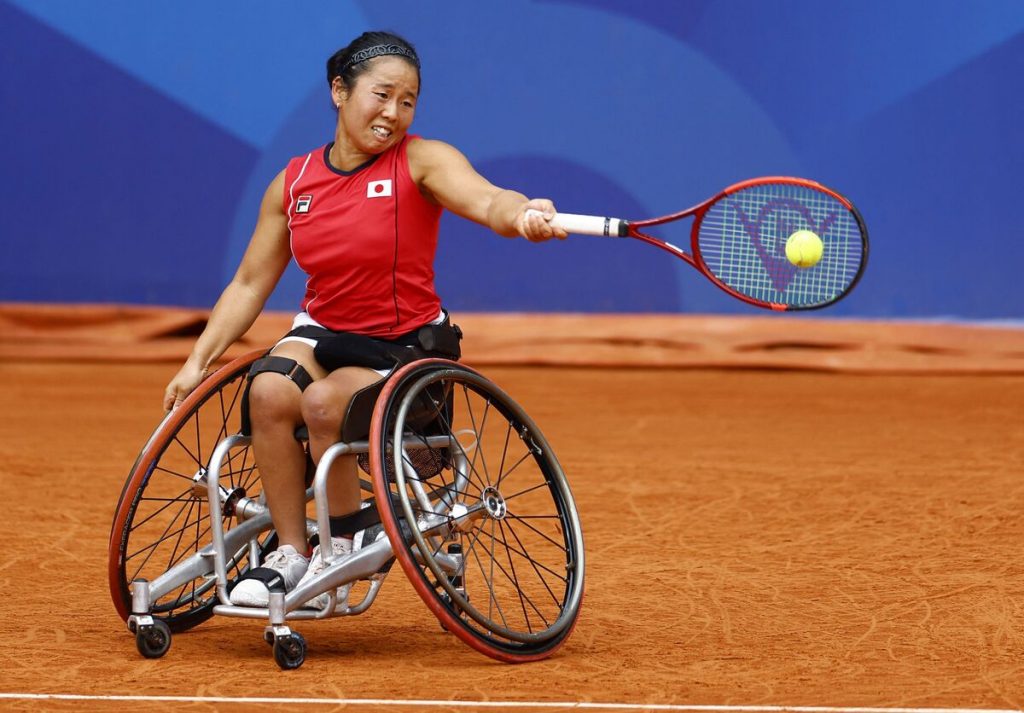
Continued Success at the Paralympics
A number of Japanese Para athletes repeated as medalists three years later in France. For example, wheelchair tennis standout Yui Kamiji provided an enduring lesson in perseverance. At the 2016 Rio Games, she was the women's singles bronze medalist. In Tokyo, Kamiji was the runner-up.
On September 6, Kamiji defeated Diede de Groot of the Netherlands 4-6, 6-3, 6-4 in the gold-medal match. Kamiji overcame the odds in conquering de Groot, who had won 46 of their 62 previous encounters.
A day earlier, Kamiji and Manami Tanaka topped de Groot and Aniek van Koot 4-6, 7-6 (7-3), 10-8 to grab the doubles gold.
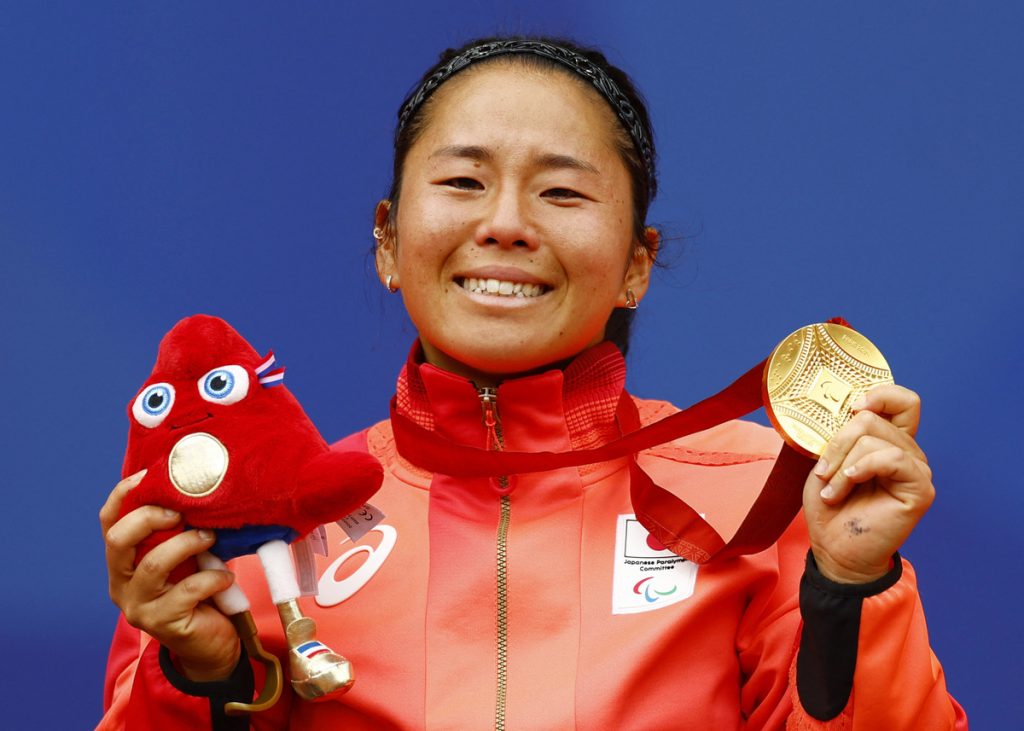
Kamiji, a 30-year-old former world No 1 singles player, was thrilled with the outcome in both tennis events in Paris.
"I just can't describe how big this is," Kamiji said after winning the singles final.
She added, "I said yesterday that doubles gold was the best moment of my career, but I also said that might change ― and this is the best moment of my career.
"I'm happy. I want to thank my team, my family and friends, but also Diede for showing people how good wheelchair tennis is, and how good women's singles is."
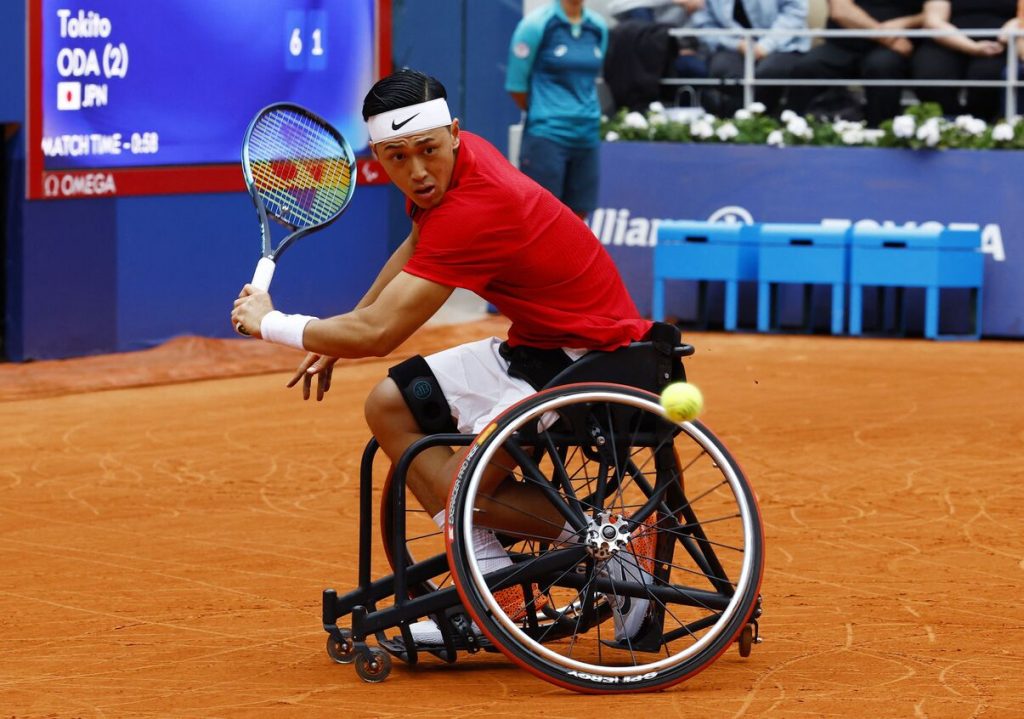
Another Banner Achievement for Teenager Oda
In 2024, Tokito Oda triumphed in the Australian Open and French Open wheelchair tennis men's singles finals. The 18-year-old, ranked second in the world, won his first Paralympic gold by beating Britain's top-ranked Alfie Hewett 6-2, 4-6, 7-5 on September 7.
Oda also teamed up with Takuya Miki to earn the silver medal in men's doubles.
All-time great Shingo Kunieda retired in January 2023. His jaw-dropping success on the tennis court included three Paralympic singles gold medals (Beijing 2008, London 2012 and Tokyo 2020). Oda is the next generation's star for Japan in the sport.
In terms of publicity, Oda's pulsating victory over Hewett in the singles final was a smashing success for the sport. A Paralympic record crowd of 15,225 attended the match, according to the International Tennis Federation.
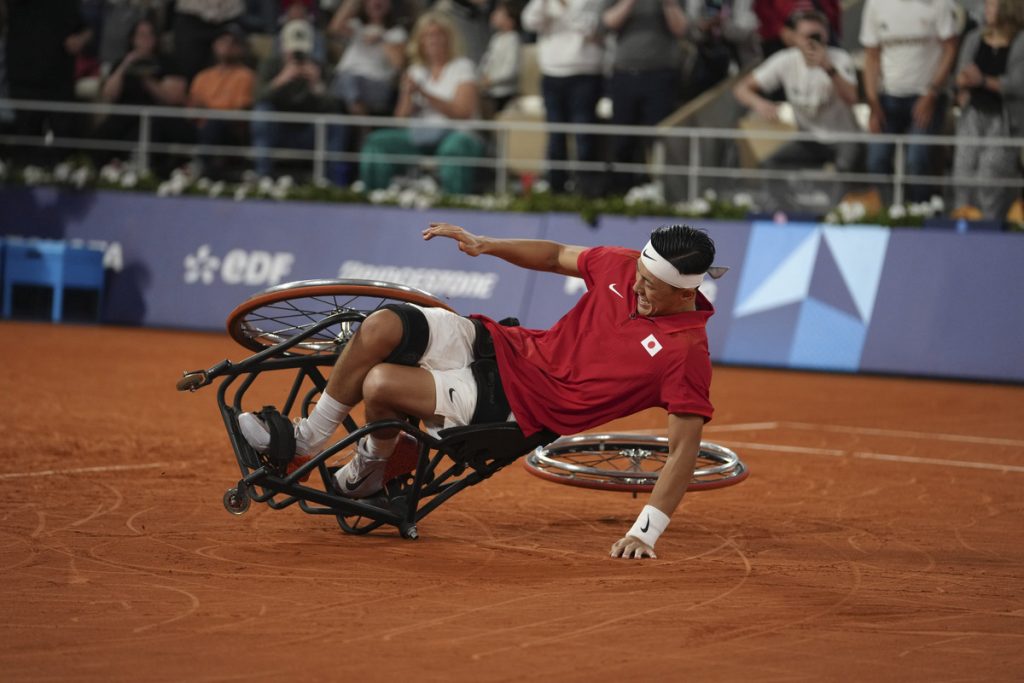
What's more, Oda shattered the record for the youngest men's singles gold medalist in the event at the Paris Paralympics. He was 18 years and 123 days old on September 7.
At the 1996 Atlanta Paralympics, Dutch player Ricky Molier became champion at 20 years and 70 days.
"I was just one point away from a loss," Oda told reporters after the men's singles final. He then said, "I was so nervous, I just told myself to keep hitting hard and that's what I did. After I saved his match point I told myself, 'I should win. I can win.' After that, I started playing really well and just played my style."
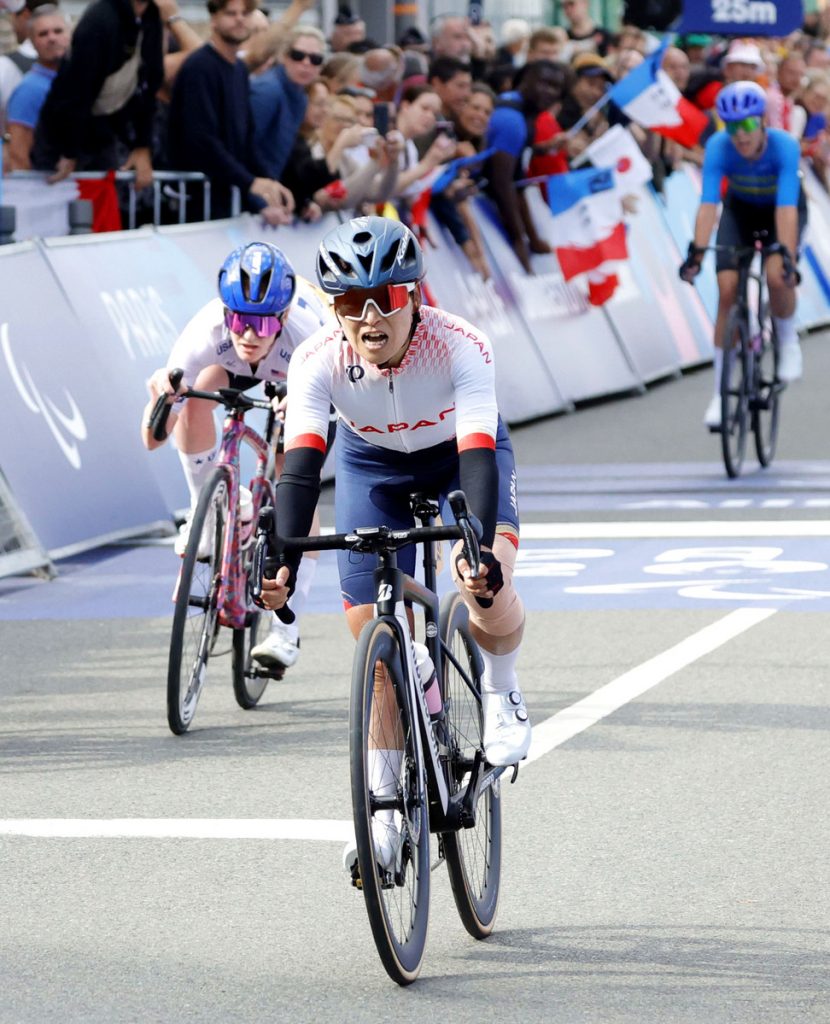
Para Cyclist Sugiura Rewrites Record
Keiko Sugiura, who became Japan's oldest Paralympic gold medalist in 2021 at age 50, established a new standard for the nation's Para athletes at the Paris Games.
In the women's cycling road race on September 7, the 53-year-old finished first overall in the C1-C3 race. Sugiura, a native of Shizuoka Prefecture, completed the 56.8-km course in 1 hour, 38 minutes, 48 seconds.
How did she react after winning the race?
"I can't believe it," Sugiura said, according to Kyodo News. "Thank goodness!"
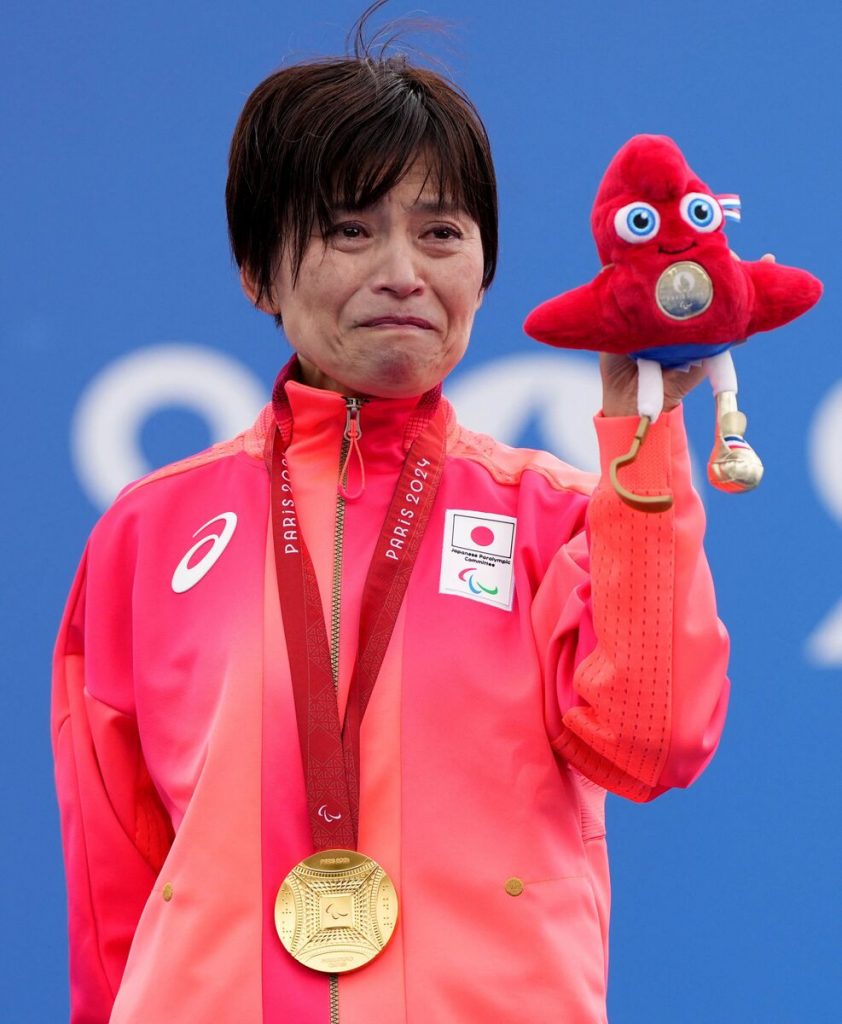
She is listed in the C3 sport class (the division includes athletes impacted by moderate limb dysfunction, limb impairments and amputations).
One of Sugiura's admirable traits as an athlete is her desire to be a positive Paralympian.
In shedding light on her mission, here's what she said, as reported by Kyodo News before the Parais Paralympics began: "I want to put a smile on everybody's faces again."
Japan's Paralympic Medals: A Closer Look
Japan brought home gold medals from the Paris Paralympics in six other sports, in addition to the wheelchair tennis titles won by Kamiji and Oda and Sugiura's age-defying victory.
Here's a quick breakdown:
- Swimming (3)
- Judo (2)
- Badminton (2)
- Table tennis (1)
- Goalball (1)
- Wheelchair rugby (1)
At Paris 2024, Japan's biggest medal haul was in swimming among Paralympic sports. The nation's Paralympians claimed 12 swimming medals, with three silver and six bronze among the results.
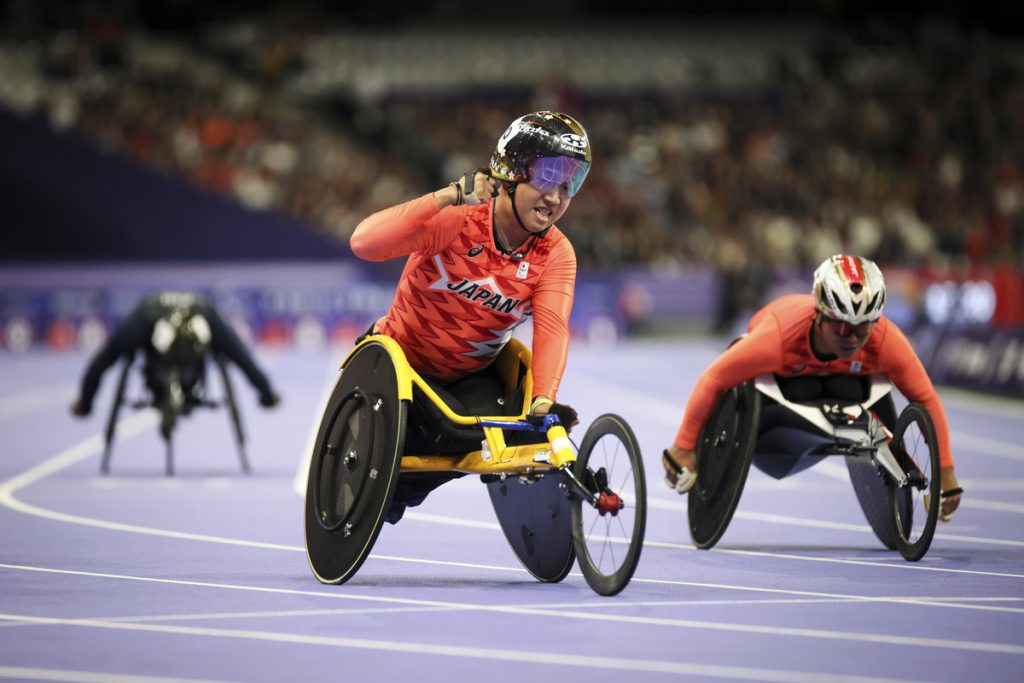
In para athletics, Japan collected nine medals (four silver, five bronze). Tomoki Sato led the way with a runner-up finish in the men's 400 meters and a bronze in the 100. He competed in the wheelchair T52 category (as noted on the Athletics Australia website, this sport class is for competitors who "have little or no movement in their legs or torso, who have good shoulder strength with some weakness in wrists and fingers.")
Team Japan's boccia Paralympians nabbed a pair of bronze medals: Hiromi Endo (women's individual competition BC1) and mixed team event (BC1/BC2), with Endo, Takayuki Hirose and Hidetaka Sugimura participating.
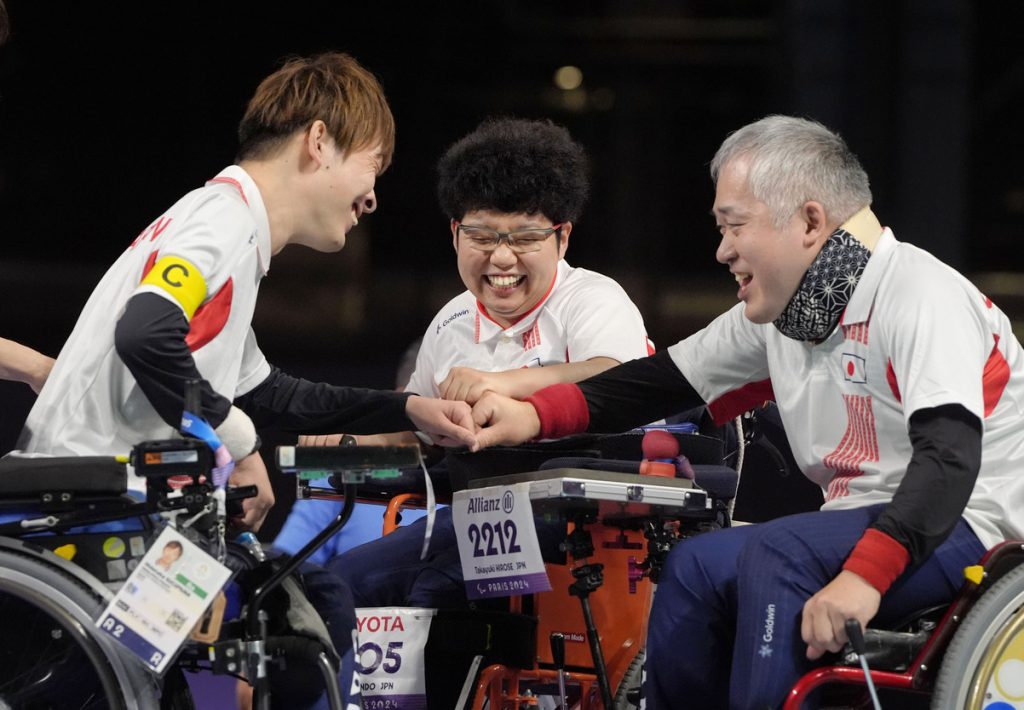
In para shooting, Mika Mizuta earned a bronze in the mixed 10-meter air rifle prone SH2 (upper limb impairment) final.
Judoka Junko Hirose, 33, won the women's 57-kg J2 (vision impairment) gold with a 10-0 win over Uzbekistan's Kumushkhan Khadjaeva in the final.
In the men's 73-kg J2 final, Yujiro Seto, who took up judo at age 4, secured the title with three victories in as many matches on September 6. He was a bronze medalist at Tokyo 2020.
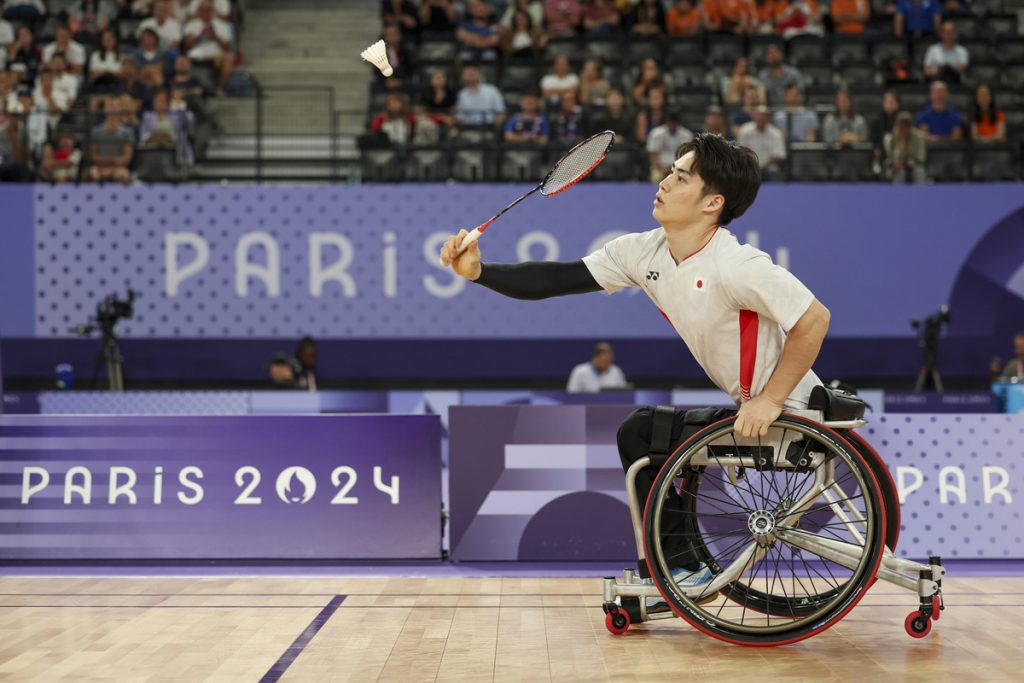
Badminton Success Story
Japanese badminton players Daiki Kajiwara and Sarina Satomi both built off the success they achieved at the Tokyo Paralympics, repeating as wheelchair singles champions in the men's and women's tournaments, respectively.
Satomi competes in the WH1 class, which the Disability Sports Australia website defines this way: "Players in this class usually have impairment in both lower limbs and trunk function."
Kajiwara, who excels in the WH2 division (labeled as less impairment than the WH1 category), cruised past Hong Kong's Ho Yuen Chan on September 2, winning 21-10, 21-10 at Arena Porte La Chapelle.
The 22-year Fukuoka Prefecture native's success in Paris was expected. After all, he captured eight singles tournament titles and three doubles titles in 2023 on the Badminton World Federation tour.
Kajiwara is a two-time BWF Male Para Badminton Player of the Year (2022, '23).
After winning the award for the second year in a row, Kajiwara outlined his major goal for 2024.
"Winning my second Player of the Year award is an unexpected and unbelievable honor," Kajiwara said in February. "It's an incredible feeling and a huge boost for me heading into the Paris Paralympics."
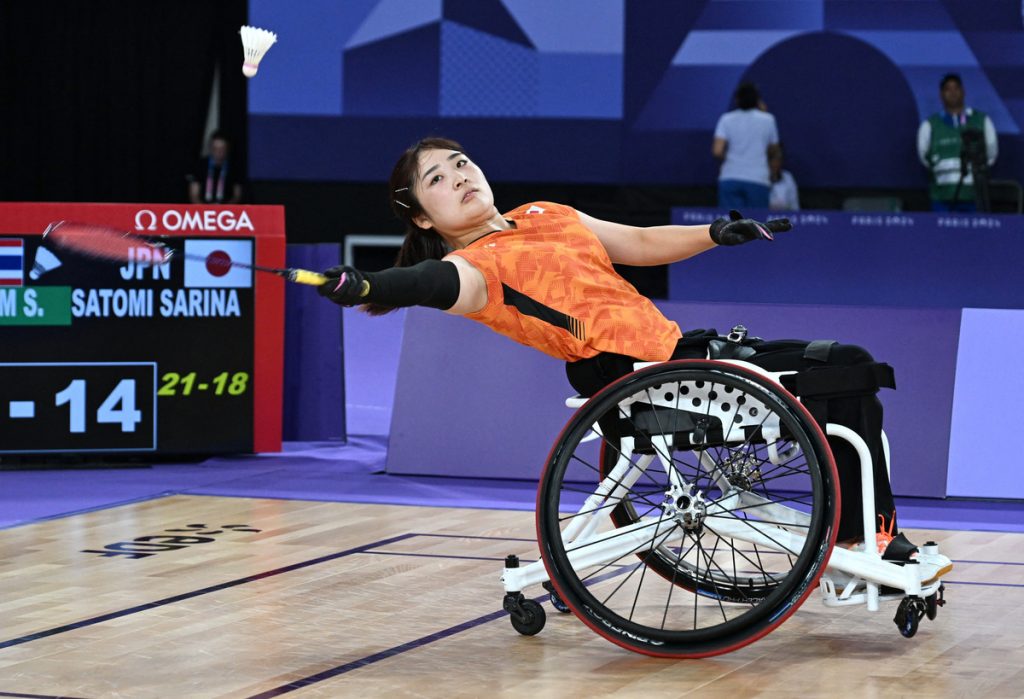
On the same day as Kajiwara's title, Satomi clinched her second consecutive Paralympic singles gold in badminton.
The 26-year-old Chiba native prevailed 18-21, 21-13, 21-18 in the title match against Thailand's Sujirat Pokkham.
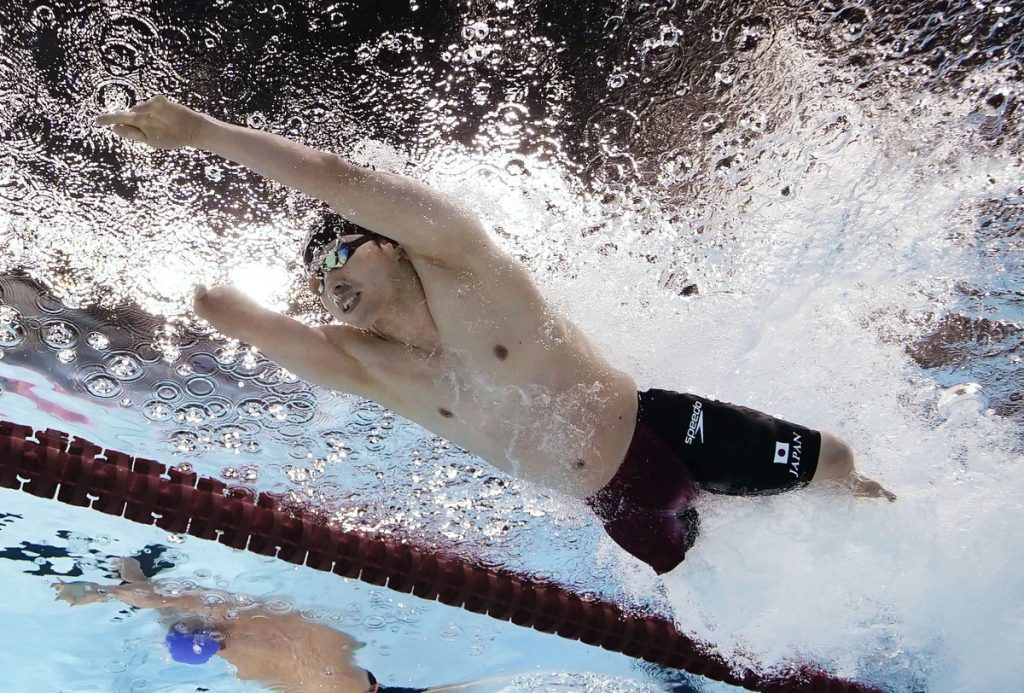
Japan's Top Swimmer at the Paralympics
Six-time Paralympian Takayuki Suzuki showed once again that he's one of the world's premier swimmers. The 37-year-old led Team Japan with four medals at the Paris Games, including a gold in the men's 50-meter breaststroke in the SB3 category. He nabbed silver in the 50- and 100-meter freestyle races in the S4 class and a bronze in the 200 free, also in S4.
Suzuki, who has a shortened left leg and was born without a right leg and has a right arm cut off at his elbow, collected five medals at Tokyo 2020.
A Waseda University alumni, Suzuki takes great pride in providing enjoyment to sports fans through his races.
"Personally, I have a strong desire to win," he was quoted as saying by NHK. "It's not easy to make a lot of people happy, so I'm very glad to be able to do that through competition."
He made his Paralympic debut in 2004 in Athens.
Kimura Achieves Gold and Personal Best
Also for Japan, Keiichi Kimura, 34, triumphed in the men's 50 freestyle in the S11 class (for visually impaired swimmers) on August 31 and 100 butterfly on September 6 at Paris La Defense Arena. In winning the latter race, Kimura established a personal-best time in the event (1 minute, 0.9 seconds).
"More than getting a gold medal, improving my personal record made me feel grounded and helped me remember the joy of swimming," Kimura told reporters after the 100-meter butterfly final, Kyodo News reported.
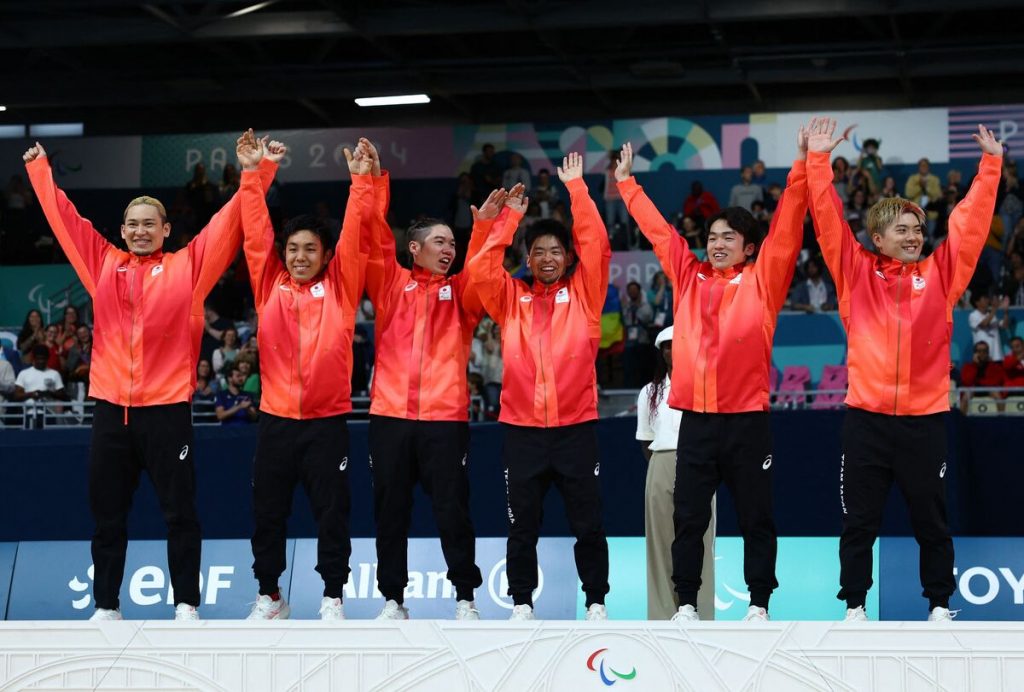
Japan Achieves a Dream with Goalball Gold
The Japan men's squad was eliminated in the quarterfinals in its goalball debut at the Paralympics at the Tokyo Games. But three years later, the team recovered from a slow start in the preliminary round, winning four straight matches to claim the gold on September 5.
In the quarterfinals, Japan edged the United States 6-4 on September 2, then beat China 13-5 two days later in the semifinals, avenging a 7-6 loss in both teams' tourney opener.
On September 5, the final produced compelling drama for fans in the French capital and those following the action around the world.
Yuto Sano scored the winning goal in overtime as Japan defeated Ukraine 4-3.
The match was tied 2-2 at halftime and both teams had one goal apiece in the second half in a sport featuring Paralympians with visual impairments and six players per side on the court.
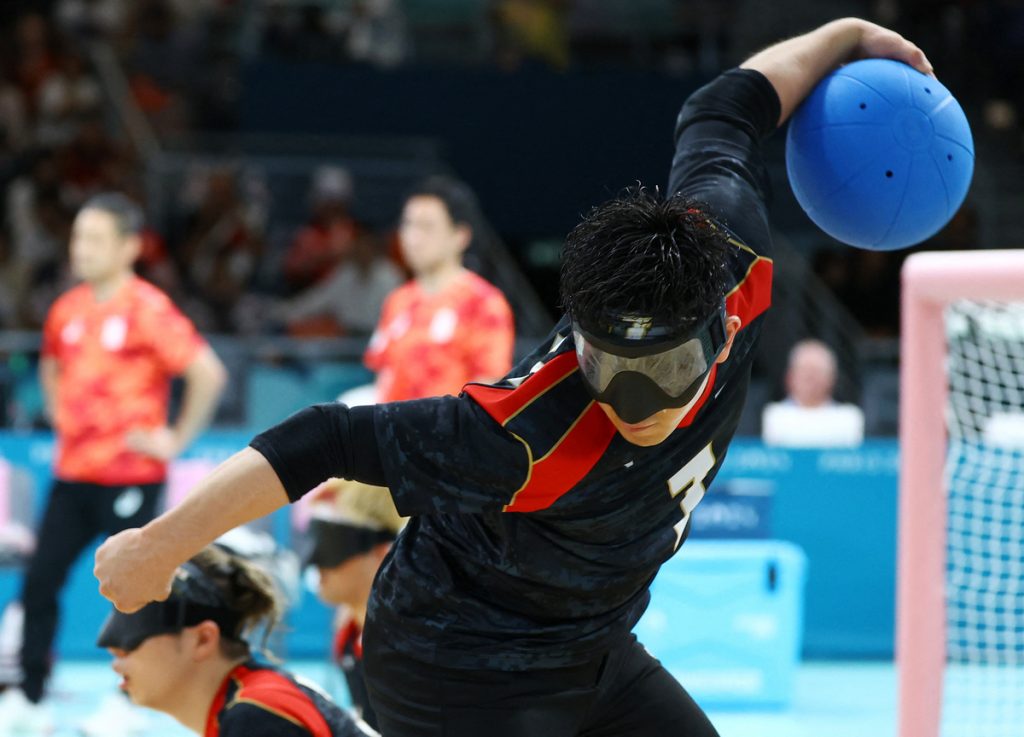
Sano paced Japan with two goals. Teammates Kazuya Kaneko and Koji Miyajiki had one apiece.
A Confident Goalball Team
Entering the tournament, Japan was confident it would achieve its ultimate goal, according to team member Yuji Taguchi.
"We will win the gold medal at the Paris Paralympics and we will prove that Japan is number one in the world," Taguchi said, according to a team feature published on the International Paralympic Committee website.
Mission accomplished.
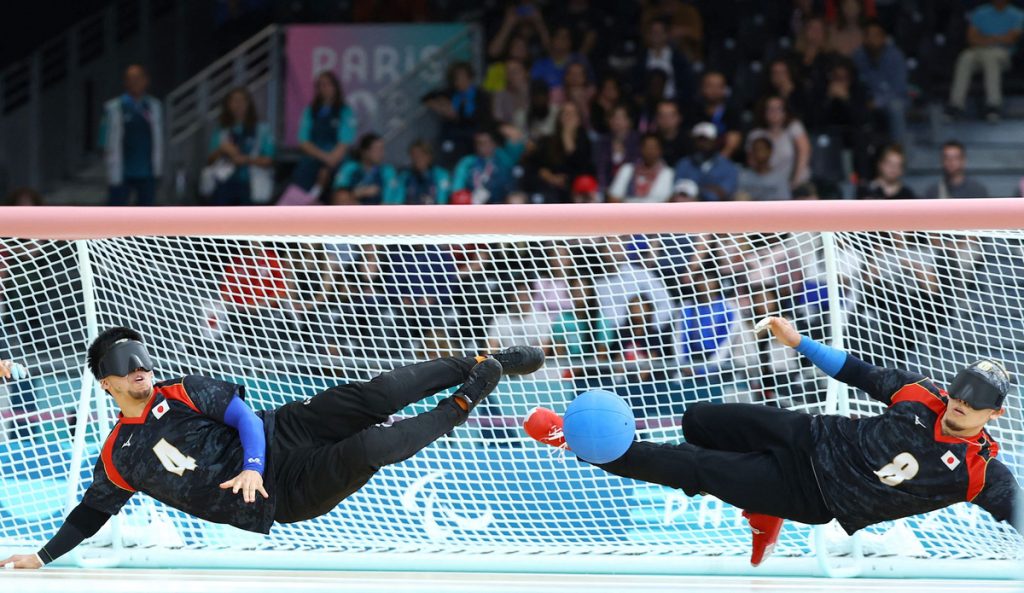
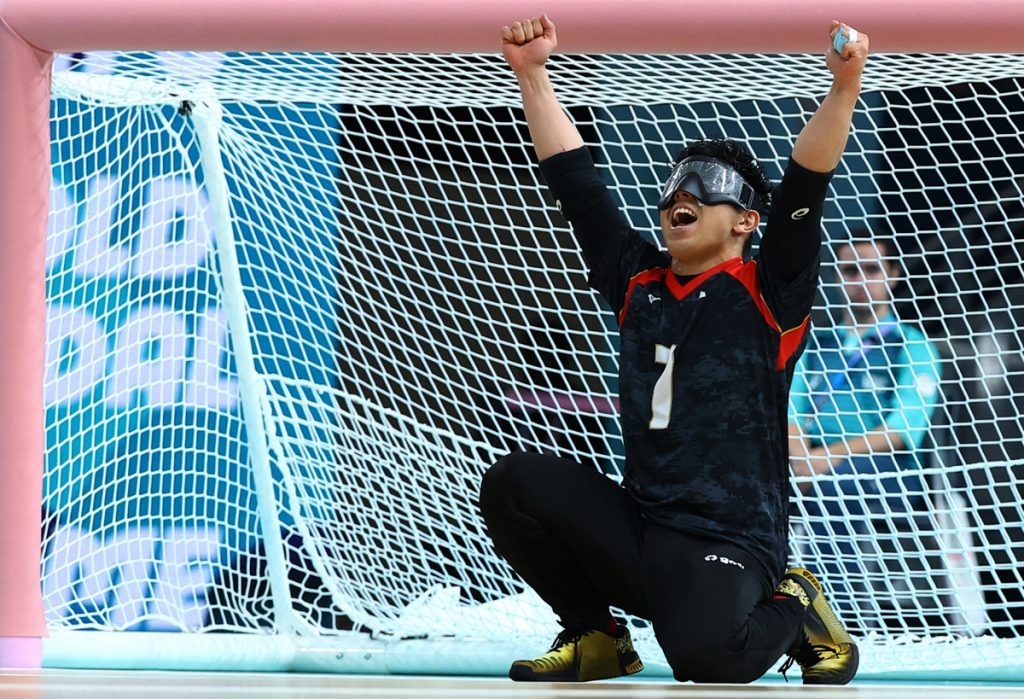
The ending was thrilling for Taguchi and his teammates.
Just ask Sano, who jumped for joy when the match ended.
"I didn't hear the final whistle blow, but from the cheers in the venue I realized I'd done it," Sano was quoted as saying by Kyodo News. "My body just reacted on its own."
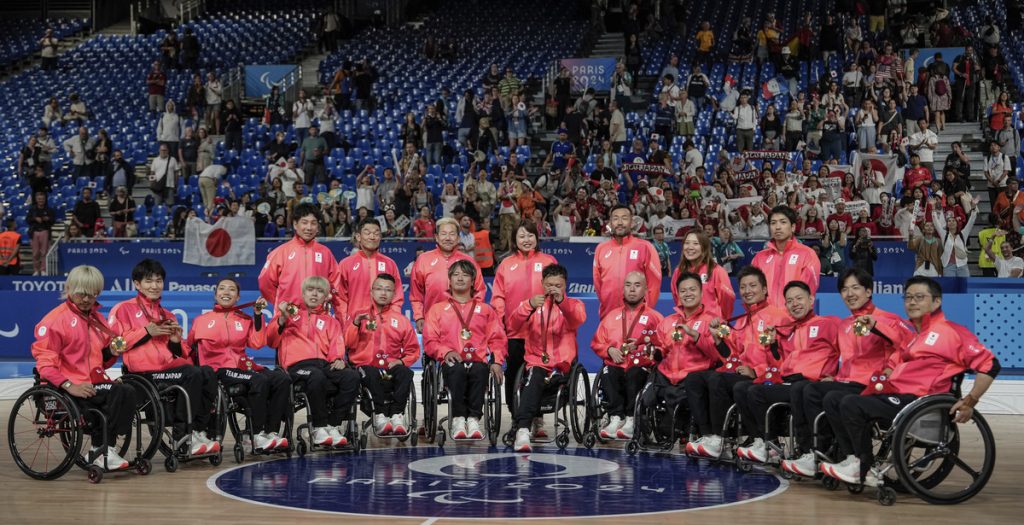
Unbeaten Japan Captures 1st Wheelchair Rugby Gold
In a quintet of high-scoring matches, the Japan wheelchair rugby team triumphed every time at the Paris Paralympics. This coming after the squad earned back-to-back bronze medals at Rio 2016 and Tokyo 2020.
Before reaching the semifinals in the tournament open to men and women players in Paris, Japan topped Germany 55-42, the United States 45-42 and Canada 50-46 in succession.
In the semifinals, Japan eked out a nail-biting 52-51 win over Australia.
That set the stage for a rematch with Team USA on September 2 at Champ-de-Mars Arena.
In the entertaining finale, Japan trailed 14-11 after the first period and took a 24-23 lead into halftime. The Americans faced a 35-32 deficit entering the fourth quarter.
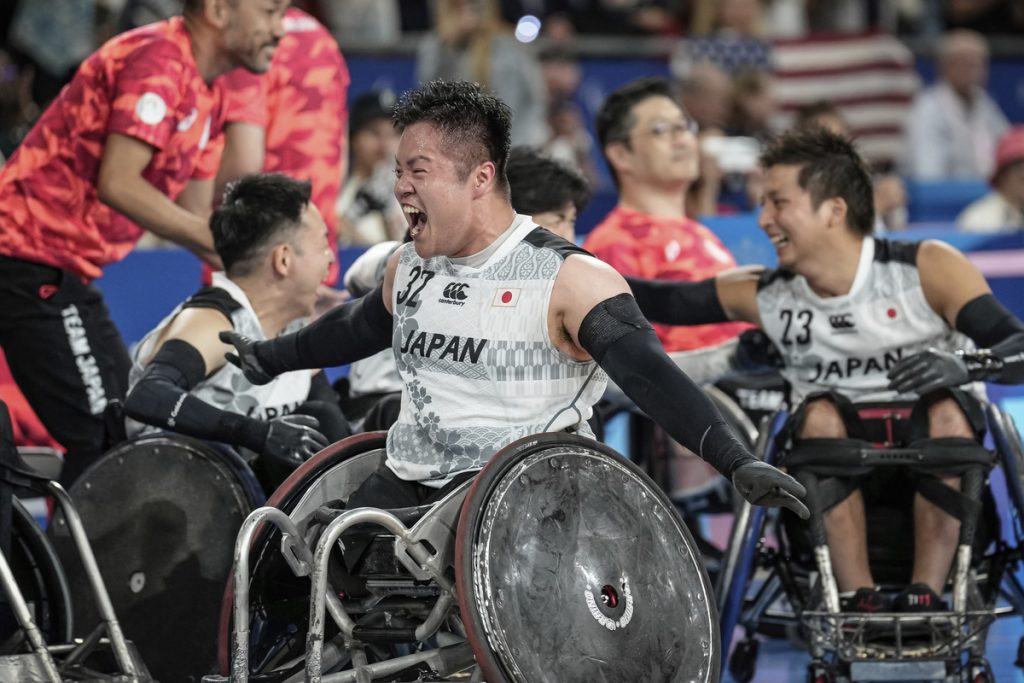
Katsuya Hashimoto, 22, and Yukinobu Ike, 44, led Japan with 19 and 16 tries, respectively. Daisuke Ikezaki, 46, contributed six tries.
Japan Rugby Team Had High Expectations
Past disappointment fueled Japan's success story in Paris, according to team captain Ike, a three-time Paralympian.
"Our frustration has made us stronger," he was quoted as saying by NHK, referring to past results. "I think this gold medal was the result of the continuous efforts of the entire team, thinking, 'Is this good enough or is this not good enough?' "
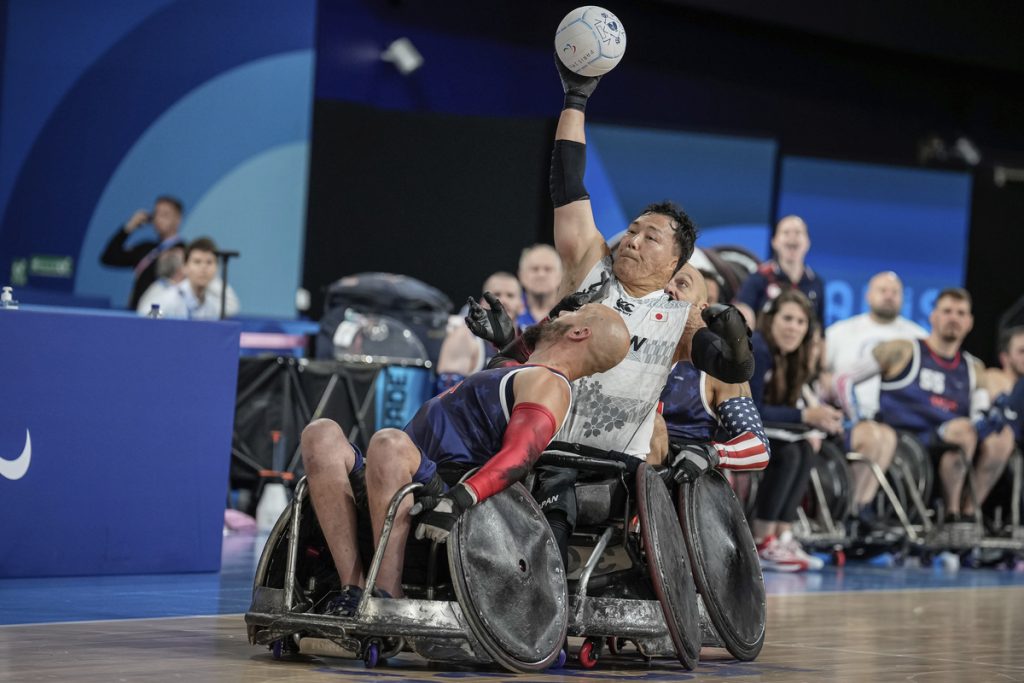
RELATED:
- Paris Paralympic Games: Japan's Para Athletes Inspire the World
- EDITORIAL | The Paris Paralympics 'Here to Compete, Win, and Smash World Records'
- Japan's 51-Medal Haul Represents a Vibrant Collage of Great Feats and Inspiring Individuals
Author: Ed Odeven
Find Ed on JAPAN Forward's dedicated website, SportsLook. Follow his [Japan Sports Notebook] on Sundays, [Odds and Evens] during the week, and X (formerly Twitter) @ed_odeven.






